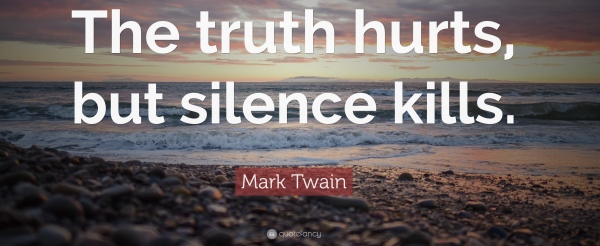Stop silencing the world
No matter how great it feels, it’s bad.
Twitter introduced a mute function in 2014 and it has proved to be the social network’s most popular feature. Instagram added a similar function in 2018.
Last month, Uber began trialling an option to “mute your driver”, which is obviously, as an Uber driver told the Guardian “quite rude. And offensive, to be honest. It’s like saying: Shut up”.
In general, “muting” via digital technologies is proving irresistible both online and offline" “Soon we might literally be able to mute people we don’t want to hear”.
Silence kills

This silencing of the outside world isn’t healthy. Yet everyone tries to do it. But how and why, exactly, silencing the world is bad?
At first sight, silencing is a dream come true:
- “who hasn’t fantasised about being able to mute an annoying colleague, a screaming toddler or an over-friendly waiter?"
- on-demand, ubiquitous muting it’s like “living in a self-imposed creative bubble for a little while."
In practice, things are quite different, and quite darker too.
On one hand, this desire to mute is a wrong way to fix a wrong habit: since we all act full time on social media, silencing seems the only way to rest every now and then. In general, digital silencing automatically takes off any hassle and responsibility from doing something that could and should be done “manually”, only when really needed.
“Most people have their earphones on anyway”
Most people mute the world simply because they consider it boring. Living with earphones on is maybe the most common form of always-on muting: “Earphones are the closest we have to earlids”.
But earlids are very often bad. Besides being psychologically and socially unhealthy, “cutting off” external noises is often counterproductive, or plain stupid: “There are thousands of studies that show that listening to music is incredibly bad for your concentration. It’s just more enjoyable”. Still, schools and campuses are full of students seriously “convinced that listening to music can increase their concentration and performance that way”.
In the long run, silencing damages the social fabric. We will probably see (note I did not write “hear”) the full effects only decades from now, but being able to cut off noises of the world just pushes people even faster to “just become atomised individuals [self-removed] from society and the chance to interact, help, experience delight”.
And this was before the pandemic!
That Guardian article was published in June 2019, that is before the pandemic. Just think how much progress we have far along the road of digitally “self-removing” ourselves from the real world.
Who writes this, why, and how to help
I am Marco Fioretti, tech writer and aspiring polymath doing human-digital research and popularization.
I do it because YOUR civil rights and the quality of YOUR life depend every year more on how software is used AROUND you.
To this end, I have already shared more than a million words on this blog, without any paywall or user tracking, and am sharing the next million through a newsletter, also without any paywall.
The more direct support I get, the more I can continue to inform for free parents, teachers, decision makers, and everybody else who should know more stuff like this. You can support me with paid subscriptions to my newsletter, donations via PayPal (mfioretti@nexaima.net) or LiberaPay, or in any of the other ways listed here.THANKS for your support!